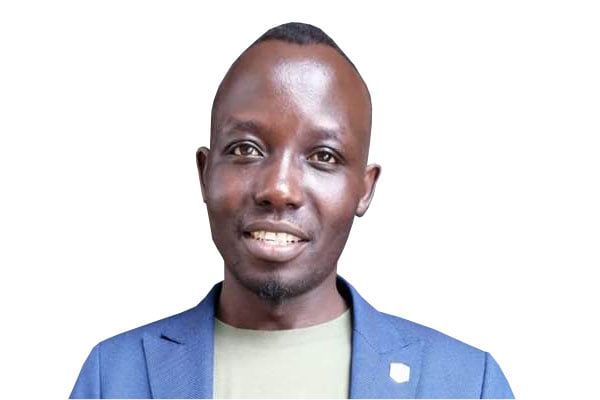Prime
World Economic Forum’s take on cryptocurrencies

Author: Martin Orena. PHOTO/COURTESY
What you need to know:
- In Uganda, thus, we can pick a leaf from these discussions in order to better understand this animal called crypto and thereby tame it towards our own devices.
The crypto industry was a big issue at the World Economic Forum’s annual conference in May 2022. However, in light of the many happenings in the industry recently, the industry had a quiet yet significant showing in Davos, Switzerland, this year.
To get you up to speed, the World Economic Forum (WEF) Annual Meeting 2023 ended on the 20th of this month and was held on the theme, ‘Cooperation in a fragmented world.’
It convened leaders from government, business, and civil society to address the state of the world and discuss priorities for the year ahead.
The annual meeting provided a platform to engage in constructive, forward-looking dialogues and help find solutions through public-private cooperation.
In this vein, it could not ignore the crypto industry, which is as forward-looking as any industry can get.
So crypto had a presence at this WEF within the main forum’s own conference, with a number of panels addressing different aspects of the industry such as central bank digital currencies, digital identities, token economies et cetera.
Let us look at token economies, which simply refer to markets whose assets are represented by digital tokens.
These tokens are in the shape of coins such as Bitcoin and Ether or NFTs representing real-world assets like artwork, real estate, or even a random selfie.
In the in-depth discussions at the WEF, an erudite panel of blockchain industry personalities came to the happy conclusion that the economy will become increasingly tokenised in the future.
To put this in perspective, this means that carbon credits, housing, electricity, government bonds, foreign exchange and other real-world assets will be traded on the blockchain.
These lively discussions at the WEF came under theme: “Tokenised economies, coming alive.”
And they packed a serious punch with an action-packed panel of discussants which featured Circle CEO Jeremy Allaire, Bitkub Capital CEO Jirayut “Topp” Srupsrisopa, Finnish Minister of Transport and Communications Timo Harraka, and Yield Guild Games co-founder Beryl Li.
It was Topp who set the discussions rolling by revealing that Thailand’s central bank will be setting in train a number of crypto-friendly measures which include a central bank digital currency for the Thai baht (Thailand’s currency) wholesale market in the first quarter of 2023.
Again, the Thai government is currently working in close harness with the Monetary Authority of Singapore to handle remittances between the two countries using the new currency.
To gild the lily further, so to speak, the Thai government is working on an “investment token” licence.
This is quite apart from the current crypto licence and this investment token will permit entrepreneurs to “tokenise all kinds of values.”
This tokenisation of values includes government bonds, carbon credit trading, foreign exchange, electricity units and other assets.
This means “tokenisation will be the foundation of the digital economy going forward,” Topp added.
The Minister of Transport and Communication of Finland, Harakka, made the point that self-custody of data will be an important issue moving forward.
Harrakka said a combine in Finland was curated in 2014 called “MyData.org”. The purport of this association was to allow users to exercise ownership and control over their data.
As a side note, I might add, data in crypto currency is used in forecasting and predicting the prices of digital coins. Data science is used to figure out what causes the changes in the prices of these coins. Then, indicate whether the price will go up or down in the future.
In Uganda, thus, we can pick a leaf from these discussions in order to better understand this animal called crypto and thereby tame it towards our own devices.
Mr Martin Orena, is the CEO of DM Exchange, a Fintech company. @martinorena



